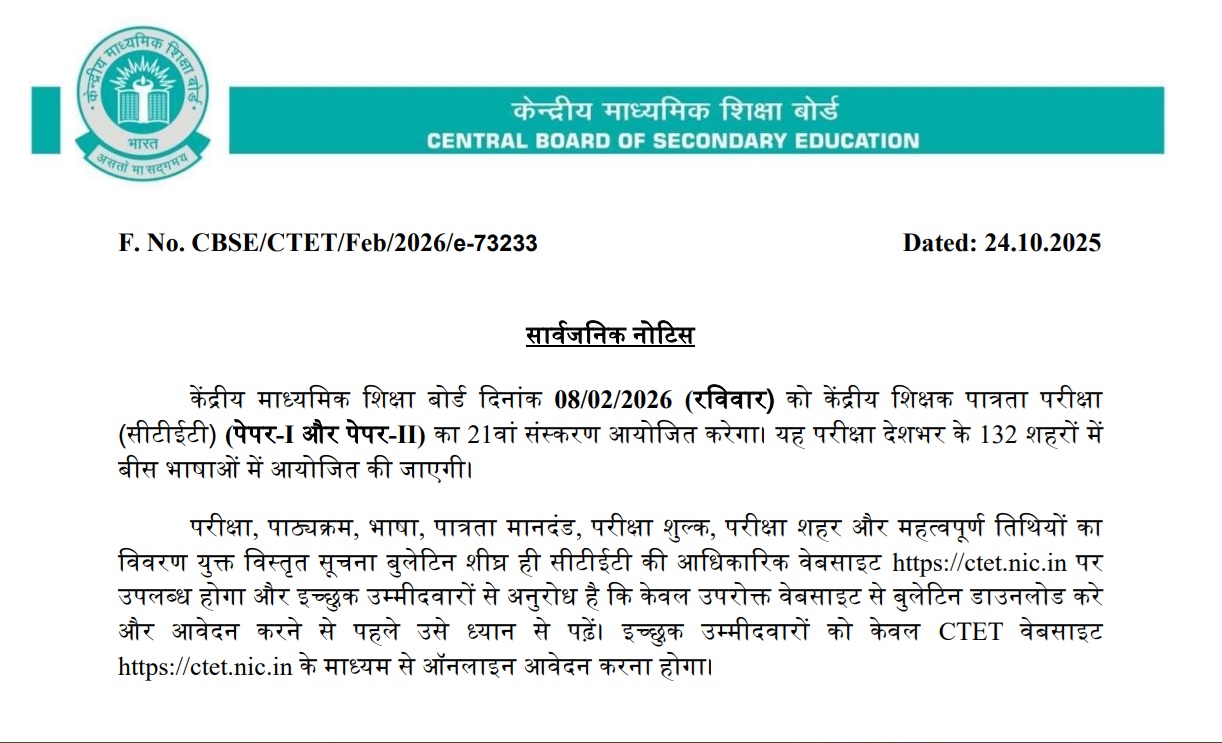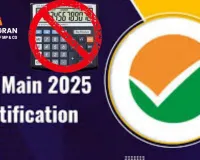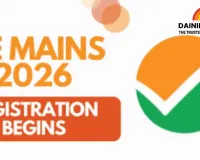CTET 2026 Exam on February 8: CBSE releases official notice; Supreme Court mandates TET qualification for all teachers
Digital Desk

The February 2026 edition of the Central Teachers Eligibility Test (CTET) is scheduled for 8 February, according to a notice issued by CBSE.
This will be the 21st edition of the exam, which will be held in 132 cities across the country and conducted in 20 languages. The detailed notification is expected to be released soon, after which the application process will open.
According to the notification, the CTET 2026 examination will include two papers. Paper 1 is intended for candidates aspiring to teach classes 1 to 5, while Paper 2 is meant for those who wish to teach classes 6 to 8.
Both papers will consist of multiple-choice questions (MCQs), each carrying one mark. As per CTET guidelines, there will be no negative marking for incorrect answers.
The examination schedule has also been announced: Paper 2 will be held in the morning session from 9:30 AM to 12:00 PM, and Paper 1 will take place in the afternoon session from 2:00 PM to 4:30 PM.
Detailed information regarding the syllabus, eligibility criteria, application fees, and list of examination centers will soon be available on the official website — ctet.nic.in.
TET Now Compulsory for All Teachers
On September 1, the Supreme Court ruled that all teachers must clear the Teachers Eligibility Test (TET) to remain in service or be considered for promotions.
A bench comprising Justice Deepankar Datta and Justice Augustine George Masih stated that teachers with more than five years of service remaining must qualify the TET. Those who fail to do so will have to either resign or accept compulsory retirement.

However, the court provided relief to teachers who have less than five years left before retirement.
About the TET Exam
The Teachers Eligibility Test (TET) is a national-level examination designed to evaluate the eligibility of candidates aspiring to teach classes 1 to 8. The National Council for Teacher Education (NCTE) made TET mandatory in 2010 to ensure quality standards in the teaching profession



.jpg)

.jpg)


.jpg)
.jpg)
.jpg)
